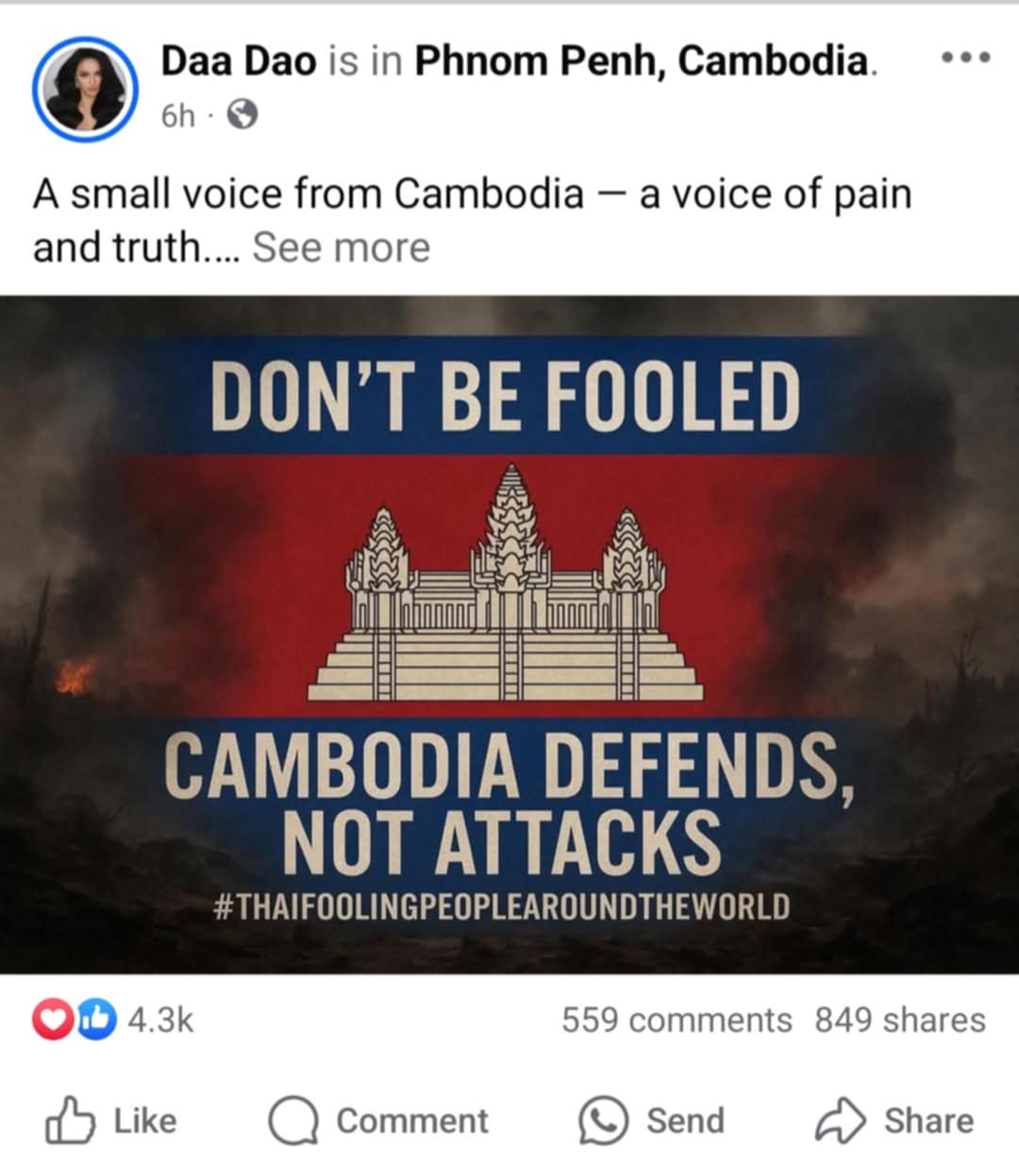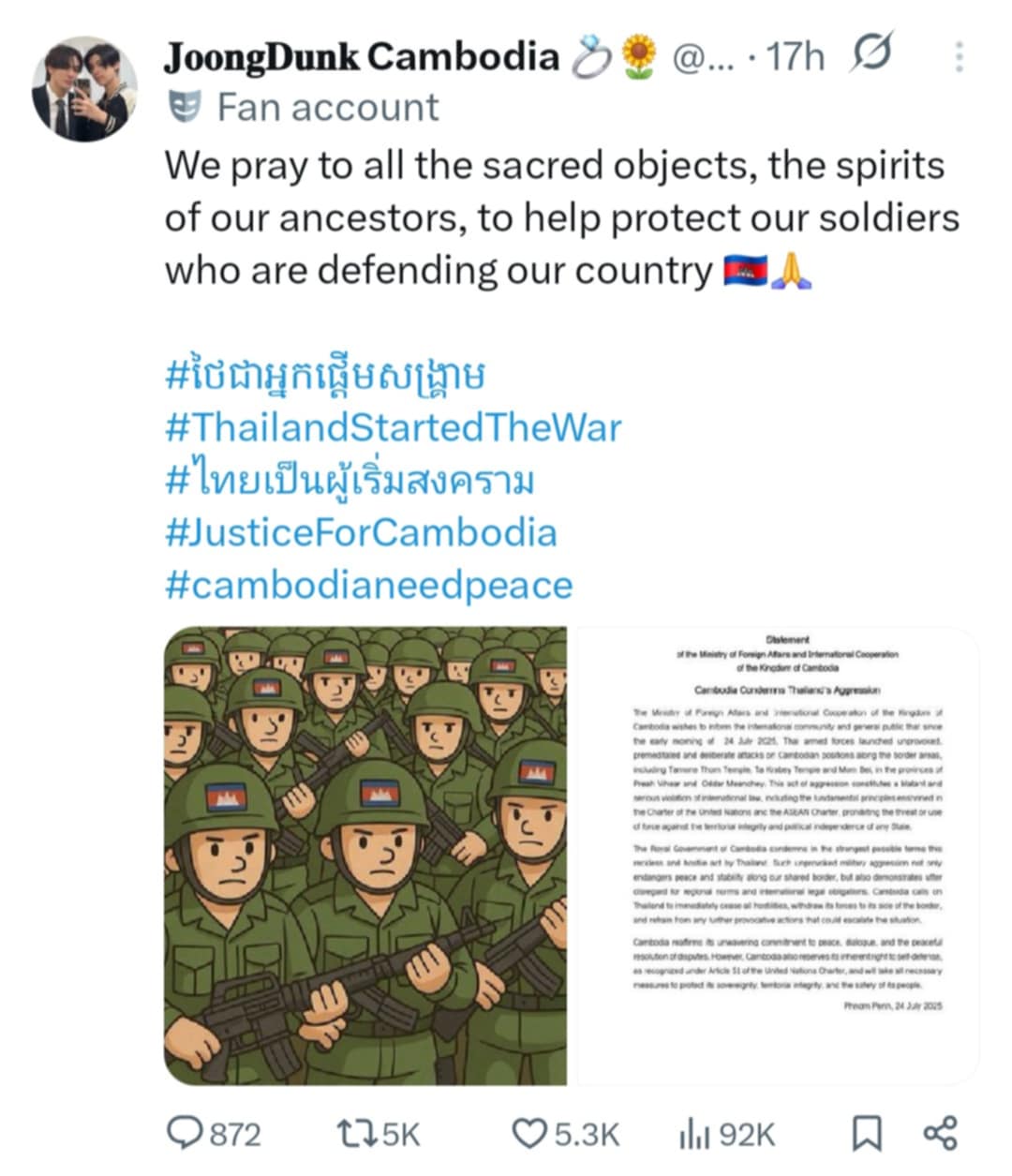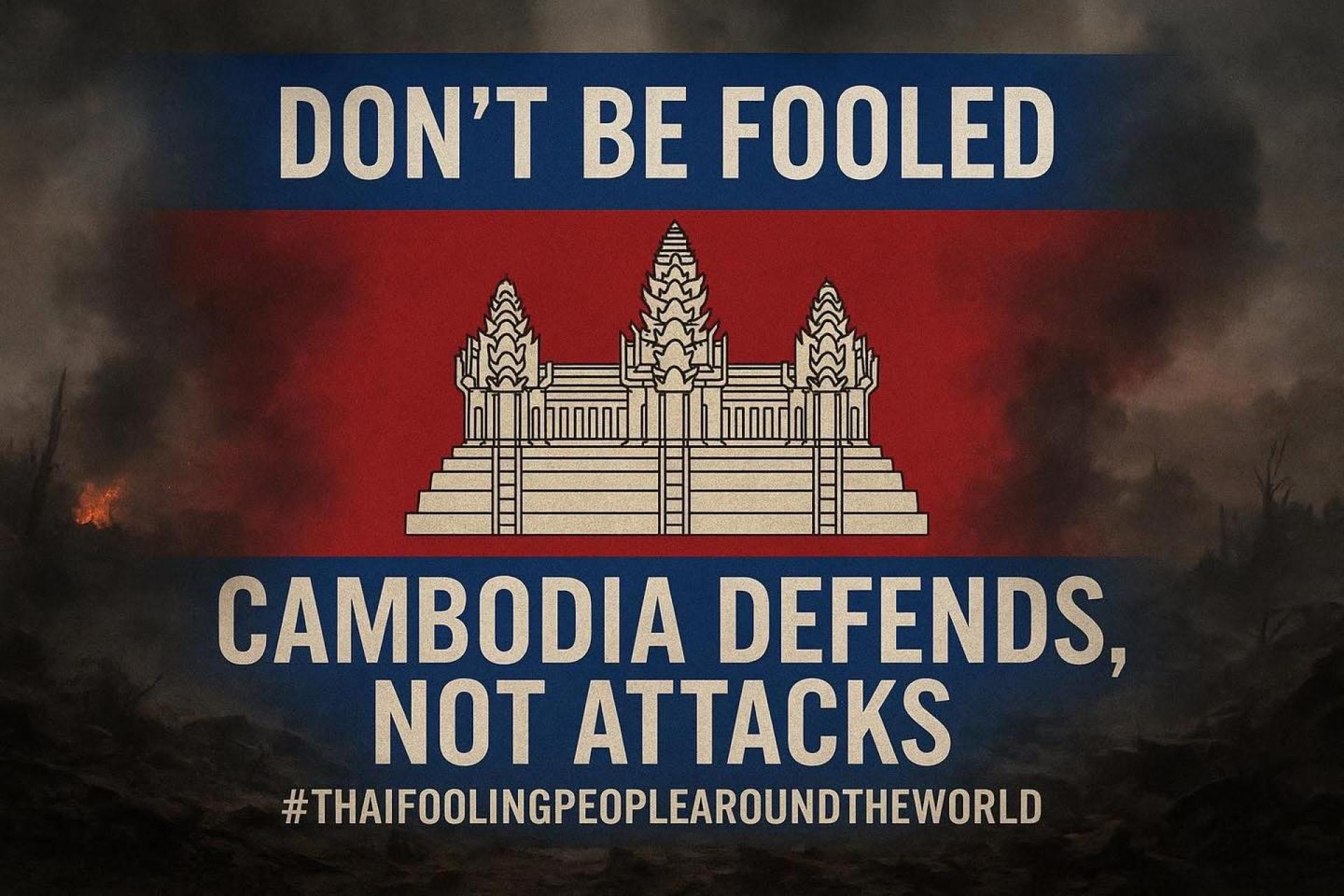In the Thai-Cambodian border military conflict, both countries accuse the other of initiating the violence that led to this clash. Cambodian media and citizens have launched an opinion war on social media, accusing Thailand of firing the first shot and insisting Cambodia was merely defending itself.
“Cambodia Nation Media” posted on social media stating that the roar of Thai F-16 fighter jets tore through the border skies, shaking not only the already tense line between Cambodia and Thailand but also ripping open the international media’s collective indifference toward the plight of “small nations.” Meanwhile, a single tear from former Thai Prime Minister Paetongtarn made global headlines. On one side are fighter jets and emotional projection, grabbing the spotlight and headlines, while Cambodia, on the other hand, remains on the margins of information.
Cambodia has never denied it is a small country. It is precisely because of this that Cambodia cherishes peace even more. Every inch of land along the border line carries the weight of historical pain, so Cambodia has always held “peace, rule of law, and self-defense” as the fundamental bottom lines of the nation. Cambodia did not choose provocation, nor did it choose silence—instead, it opted to respond according to the law and to speak rationally. But in an era where algorithms dictate the pace and emotions dominate public opinion, the rational voice of smaller nations is often drowned out by the noise of the big powers.

As the world interprets the deployment of Thai F-16s as so-called “border self-protection,” Cambodia must make it clear: Cambodia is the aggrieved party, passively exercising the right to self-defense within its own sovereign territory. Cambodia did not fire across the border, nor was it the first to use force. Cambodia has only one red line: the sacred inviolability of its national territory. As for why the Thai military suddenly closed the border, expelled diplomats, and deployed fighter jets—even local Thais are baffled. Yet today, mainstream international discourse only asks “who cried,” but never asks “who fired the first shot.”
Besides state media, Cambodian civilians have also joined the opinion war. Not only ordinary citizens, but even celebrities and online influencers have been posting on social media and sharing posts in major groups, accusing Thailand of firing the first shot and claiming that Cambodia’s response was purely self-defense.
Cambodian state media and civil society have launched this opinion battle in an attempt to counter the sympathetic narrative toward Thailand, seeking to convince the world that it was Thailand who initiated the violence, and Cambodia only fired back in self-defense.

